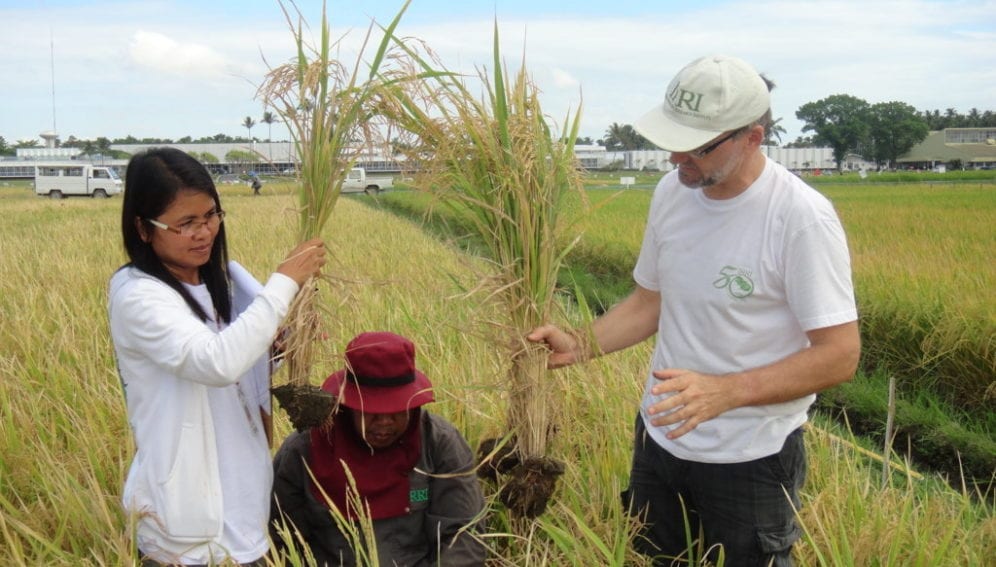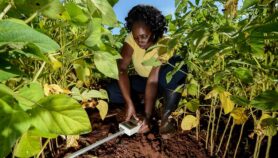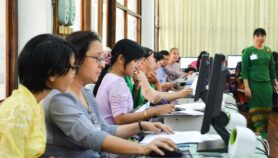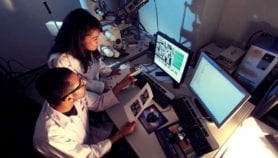Send to a friend
The details you provide on this page will not be used to send unsolicited email, and will not be sold to a 3rd party. See privacy policy.
Recognising common ground is the first step towards concrete ways of enhancing the work of both scientists and development practitioners.
The world of science, technology and engineering might seem, for good reason, miles away from the day-to-day work of most development NGOs. But if you get past the jargon or the traditional lab-coat image and look a little closer, there is more common ground than first meets the eye.
By articulating those connections, and strengthening them, the natural sciences and development practice can make the best of what each can offer, and reinforce their collective work towards the goal of advancing wellbeing globally.
SPEED READ
- Scientific knowledge and tools feature in development practitioners' day-to-day work
- But there are areas where overlap is limited
- Links with practice need to be strengthened at the local level
Real relevance
Break it down into different fields — health, agriculture, water security or disasters — and you start to see that science and technology have very real relevance and implications for NGO practice.
There are, for example, established tools and interventions — in health and medicine they include vaccines, nutrition guidelines, anti-retroviral treatment and rehydration therapy. Wells and other engineering feats have been a prominent feature of water resource development and farming projects, arguably with mixed results.
And there are new tools, such as information and communication technologies: mobile phones are improving the delivery of aid, healthcare and farmers' access to markets; while the use of GIS (geographic information systems) and remote sensing to help with operations in food and disaster emergencies has also grown in recent years.
Beyond technological tools, NGO development practitioners interact with scientific knowledge through their role as 'implementers' on the ground. They become agents who put scientific knowledge into use — delivering innovations, building local capacity or facilitating behaviour change.
The role of evidence
More fundamentally, the role of science has to do simply with evidence — gathering and using empirical knowledge as a basis for progress in all areas that underpin development.
Evidence gathering is very much a reality for NGO practitioners through the well-developed practices of monitoring and impact evaluation. The answers tend to give a picture, however flawed, of what works and what doesn't.
For the scientific community, evidence gathering is often linked with more incremental, abstract notions of improving understanding that may or may not have immediate or tangible consequences.
Although the relevance of small advances may be limited, even here the world of science is not without consequence on the ground: an awareness of ideas and tools being developed can open up opportunities to improve practice by, for example, making use of traditional knowledge or trialling new ways to deliver vaccines.
Scientific evidence matters at the level of policymaking too — in the way that statistics become ammunition for groups that aim to influence policy, including discussions underway about the post-2015 development agenda.
A lack of capacity to collect and analyse data, particularly in poor countries, has policy implications as it gets in the way of producing a clear picture of the progress achieved through the MDGs (Millennium Development Goals).
From this perspective, science is not that removed from the political life that has real impacts on development work. And because evidence, however contested, feeds into decisions on aid priorities, the political questions extend to whose priorities the evidence responds to.
Overlap is limited
At the same time, there is a divide between the systems that support evidence gathering for science, aid or national policy. For example, NGO practitioners take relatively little benefit from the system of scholarly publications that feeds scientists' appetite for new knowledge and advances their careers.
This is an example of the limited overlap between science and NGO development work — and an area where more can be done to strengthen synergies.
Progress in science tends to be slow. This means that the new method or tool being developed today will only become available, perhaps, to the practitioner years down the line. Think of the GPS (global positioning system) devices that monitor refugee movements or vehicles used to deliver food aid — they are fruits of years of scientific investment.
The route from science to practitioner is not direct. Research needs first to be published, then commercialised and distributed (though the movement for grassroots innovation is one way that this model is being challenged).
And where tools are available, infrastructure may not support them. Delivering food or healthcare to remote populations depends on good roads; and using laptop computers to coordinate operations depends on electricity and communications infrastructure (though innovations like mobile phones go some way towards getting around such limitations).
Strengthening links
Policy and practice at the local level is where the linkages between science and development are clearest. But the space where they interact is often difficult to access — and it is perhaps where linkages most need to be strengthened.
On the one hand, international development is having a big impact on science communication globally — through funding capacity development for journalism that improves livelihoods and by driving the debate on open access to research. On the other, research guides practitioners' work by consensus — for example, on how many doses of vaccine to administer.
And like M&E (monitoring and evaluation) for development projects, which tend to be designed based on aid-agency priorities or international goals, science does not operate in a vacuum. The evidence gathered depends on factors such as whose questions are listened to, and who has been consulted in the process of answering them.
In both cases, the link with local governments tends to be weak. Over the long term, this undermines poor countries' efforts to take charge of their own development and move beyond aid.
Whether scientific questions respond to Northern priorities over local priorities, to what extent community voices are listened to and whether enough is being done to build local capacities are questions that we at SciDev.Net, and the scientific community, are grappling with. There is scope to open up this conversation to arrive at concrete ways of enhancing the work of both scientists and NGO practitioners.
Anita Makri, Opinion and special features editor
Nick Ishmael Perkins, Director
SciDev.Net
A version of this article was prepared for the April issue of The Networker, Bond's quarterly magazine.














